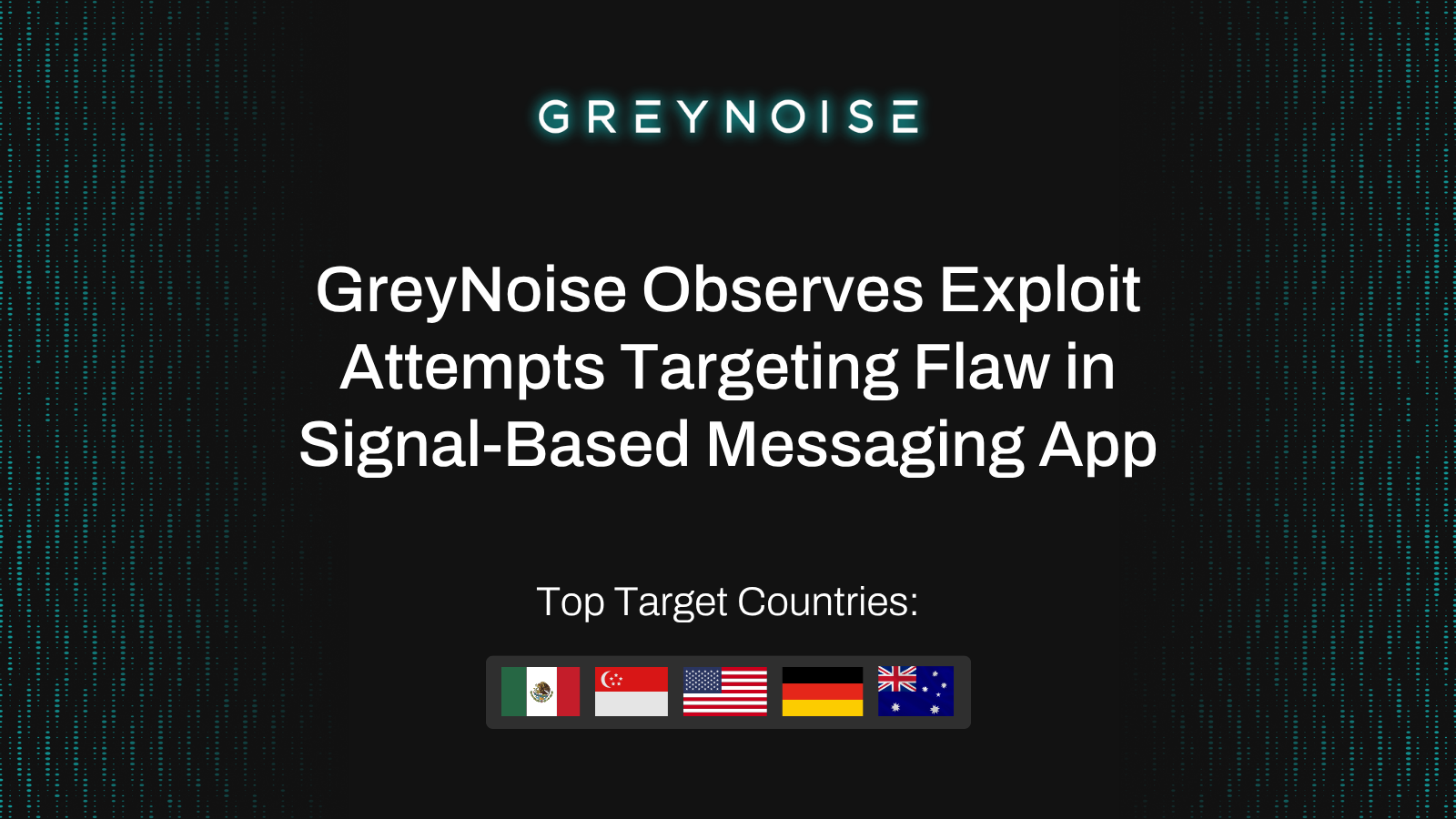21 July 2025 Update
GreyNoise has received a statement from TeleMessage, stating:
CVE-2025-48927 was fully remediated in the TeleMessage environment in early May. That remediation has been independently verified by our third-party cybersecurity partner. As a cloud-native SaaS platform, all fixes were applied centrally, and no action was required by customers. As such, any attempts to exploit CVE-2025-48927 since that time have been unsuccessful.
A vulnerability disclosed in May 2025, CVE-2025-48927, affects certain deployments of TeleMessageTM SGNL, an enterprise messaging system modeled after Signal, used by government agencies and enterprises alike to archive secure communications. The issue stems from the platform’s continued use of a legacy confirmation in Spring Boot Actuator, where a diagnostic /heapdump endpoint is publicly accessible without authentication.
If exposed, this endpoint can return a full snapshot of heap memory — roughly 150MB — which may include plaintext usernames, passwords, and other sensitive data. While newer versions of Spring Boot no longer expose this endpoint by default, public reporting indicates that TeleMessage instances continued using the older, insecure configuration through at least May 5, 2025.
On July 14th, CVE-2025-48927 was added to CISA’s Known Exploited Vulnerabilities (KEV) catalog.
See GreyNoise’s technical writeup here.
What GreyNoise is Seeing
As of July 16, GreyNoise has observed 11 IPs attempting to exploit CVE-2025-48927 (tag created July 10).
Related reconnaissance behavior is ongoing. Our telemetry shows active scanning for Spring Boot Actuator endpoints — a potential precursor to identifying systems affected by CVE-2025-48927.
- 2,009 IPs have scanned for Spring Boot Actuator endpoints in the past 90 days.
- 1,582 IPs specifically targeted the /health endpoints — commonly used to detect internet-exposed Spring Boot deployments.
- GreyNoise has launched a dedicated tag to track scanning tied to this CVE: TeleMessageTM SGNL Spring Boot Actuator /heapdump Disclosure.
What to Do
Organizations using Spring Boot — particularly in internal tools or secure messaging environments — should verify whether the /heapdump endpoint is exposed to the internet.
Recommended actions:
- Block malicious IPs using GreyNoise Block:
- Disable or restrict access to the /heapdump endpoint.
- Limit exposure of all Actuator endpoints unless explicitly required.
- Review deployment configurations and upgrade to a supported version of Spring Boot where secure defaults are enforced.
- Update TeleMessageTM SGNL if using that specific application.
GreyNoise will continue monitoring for shifts in scanning behavior and provide updates if exploitation begins.
GreyNoise has developed an enhanced dynamic IP blocklist to help defenders take faster action on emerging threats. Click here to learn more about GreyNoise Block.
---
This analysis was led by GreyNoise Researcher Howdy Fisher.










.png)
